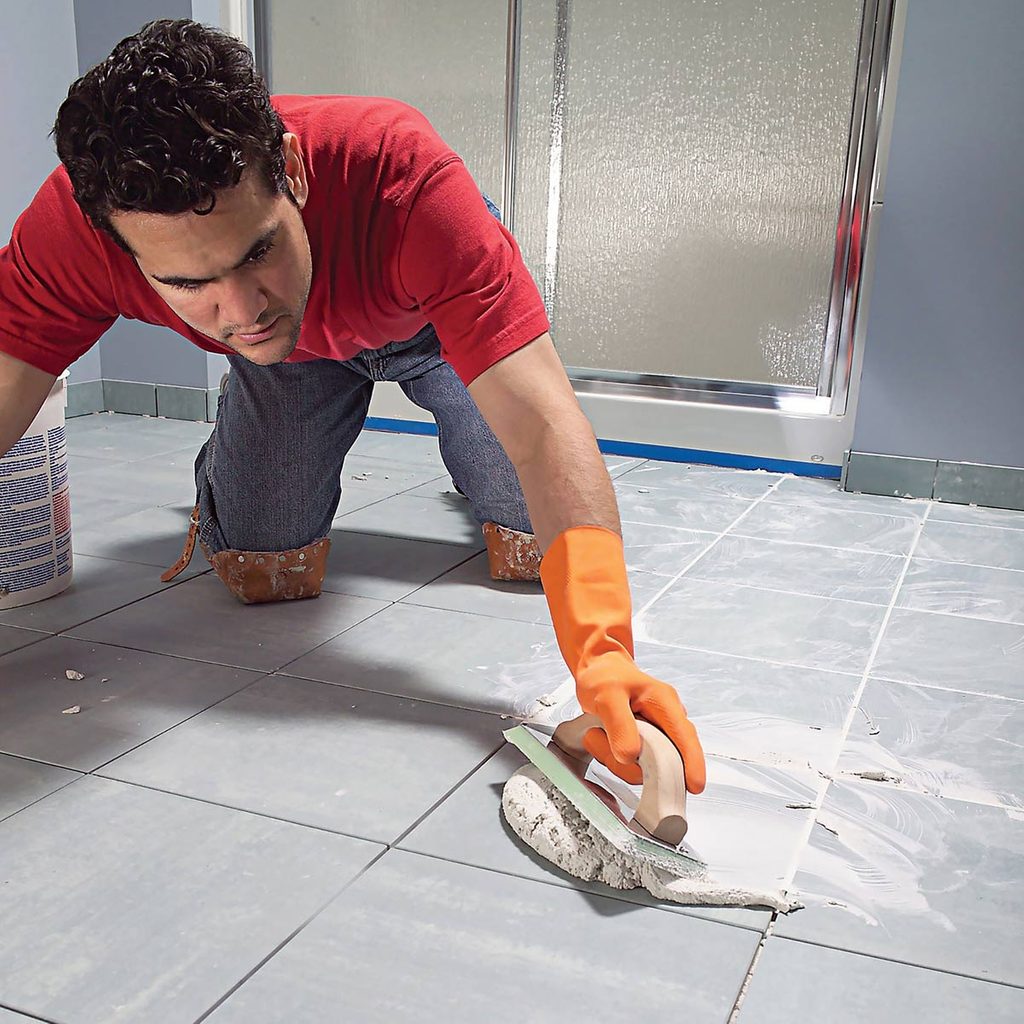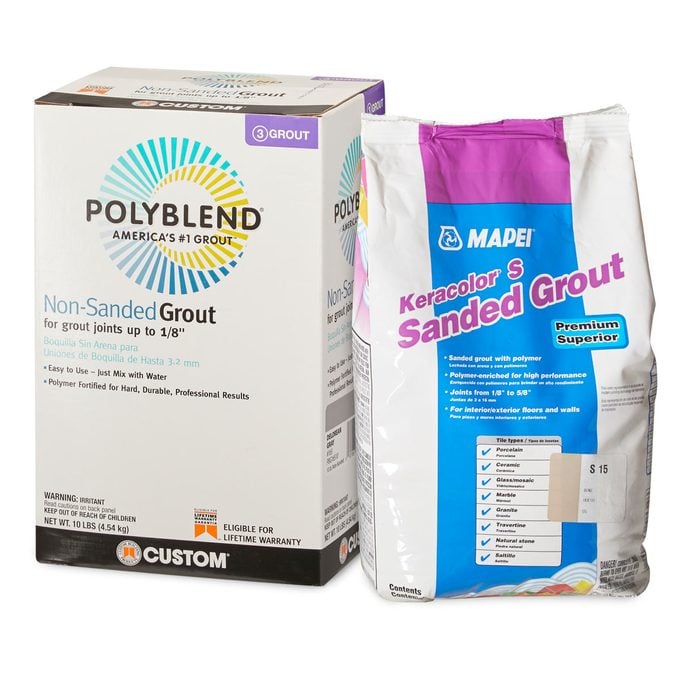Choose the Best Grout
Updated: May 19, 2023

It's the make-or-break decision for your tile project
Tile is tough stuff and can look great for years or decades after installation. Grout, on the other hand, doesn’t always perform as well. It can stain, discolor, crack or erode. In the worst cases, it allows water to enter walls or floors, which leads to much bigger problems. Bottom line: Your choice of grout is at least as important as your tile selection.
Home centers carry high-quality grout, but they don’t make choosing it easy. Luckily, Dean Sorem, our tile expert, has tried all the options and offers clear recommendations based on decades of experience. Here’s what you’ll find at home centers and flooring suppliers:

On This Page
Ready-to-use grout
All the formulas in this category let you skip the messy mixing process, and some offer excellent durability and stain resistance. But they can be tricky to use. Some harden very fast; you need to work quickly so they don’t harden on the tile before you can wipe them off. And Dean has found that they can stain porcelain tile that has a matte finish.

Standard cement grout
Like concrete or mortar, these grouts begin as a powdery mix that contains Portland cement. Then, when mixed with water, they gradually harden. While some of these products are superior to others, none of them is a bad choice. But you can find much better options that cost just a few bucks more. Check out these tips on removing grout.

Best grout choice: Top-quality cement grout
The three products shown here are superior formulations of traditional cement grout. Dean considers them the best choice for DIY projects and for most of his own jobs. Here’s what makes them stand out:
- The particles, or “aggregate,” in the powder are much smaller. That makes the grout less porous and more stain resistant. Dean has tried to stain these products and found that every stain—even red wine—disappeared with a little detergent and light scrubbing.
- There’s no need to seal the grout. Stain resistance is essentially built in.
- Unlike standard cement grout, there aren’t “sanded” and “unsanded” versions. The same product can be used on walls and floors, with narrow and wide grout joints.
- This type of grout achieves better color consistency, with very little blotchiness, even with dark-colored grouts.
Dean has one warning about these grouts: They harden fast—not as quick as epoxy or some of the premixed products, but faster than standard grout. To avoid hardened residue on the tile, mix up smaller batches, have your sponges and water buckets ready to go and don’t delay the wipe-off phase of the job. Learn our best grouting tips.
Grout cost? Who cares!
The best grout might cost you twice as much as the cheapest option. But after spending all that time, energy and money installing the tile, do you really want to risk the whole project just to save 20 bucks?
What about Epoxy?
You may have heard that epoxy is the best grout available—incredibly durable and stain resistant. That’s probably true, but Dean doesn’t think DIYers should even consider epoxy. It’s difficult to use and hardens fast, and any residue that hardens on the face of tile is a nightmare to remove. With other great options available, epoxy just doesn’t make sense.
Meet the Expert
Dean Sorem has been installing tile and teaching others how to get the best results for more than 40 years.